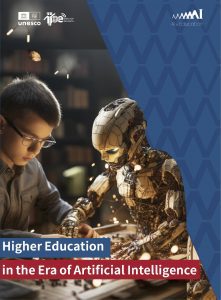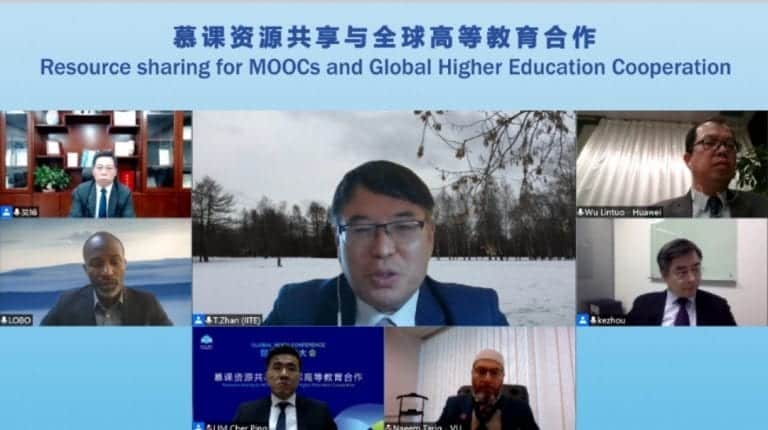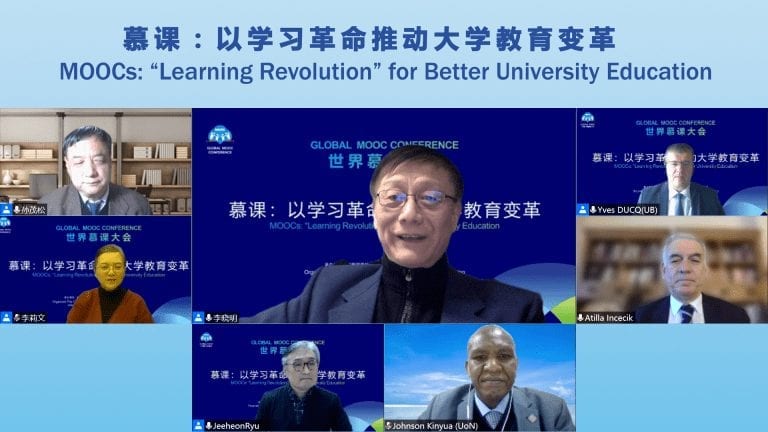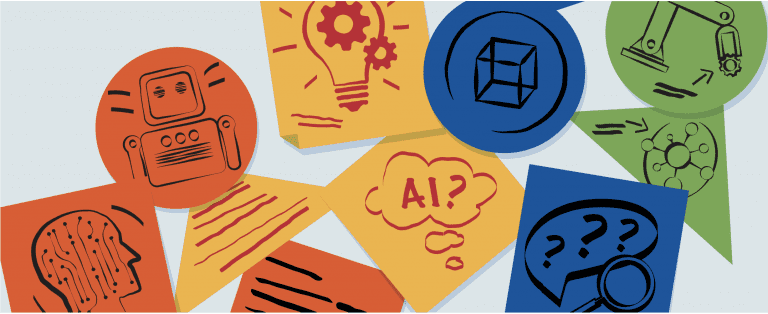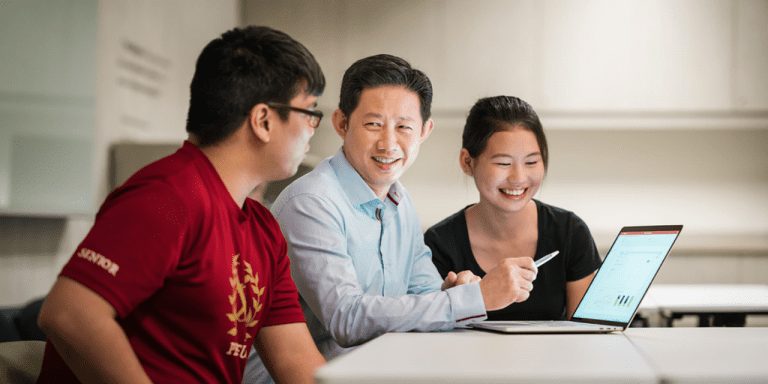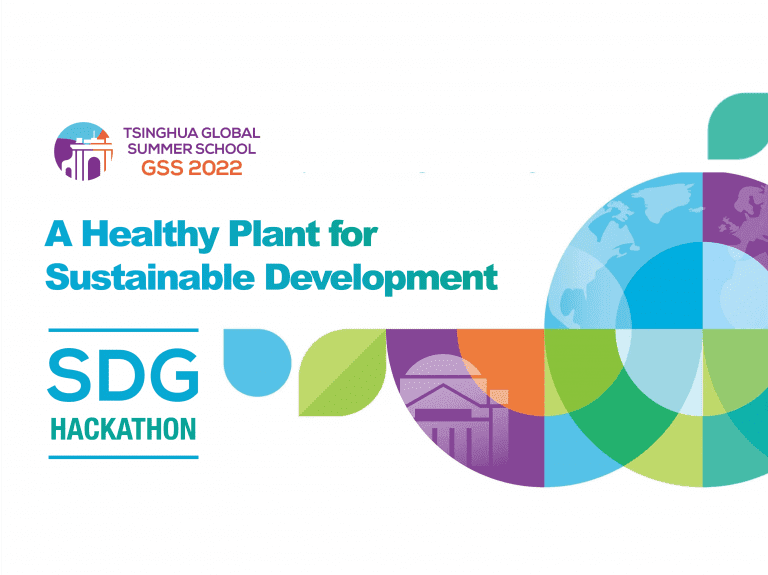On 8 December, the White Paper on Higher Education in the Era of Artificial Intelligence drafted by the International Centre for Higher Education Innovation under the auspices of UNESCO (UNESCO-ICHEI) was introduced to the summit participants during the 2023 International Institute of Online Education (IIOE) Global Partners Summit. Based on extensive consultation from experts and enterprise partners, the White Paper endeavours to explore the current approaches and future directions for the effective use of AI technologies in teaching and learning, and advocates for the multilateral collaboration of higher education stakeholders, in order to advance the good use of technologies and related policies.
This White Paper is dedicated to providing institutions and educators in the IIOE ecosystem with a more comprehensive overview of issues related to AI and higher education, as well as the vision and outlook of UNESCO-ICHEI and IIOE. It also presents concrete solutions and possible paths of action, in order to support the stakeholders in the rational use of technology to achieve high-quality and equitable higher education. After the release of the White Paper, higher education experts and partner institutions of the IIOE alliance will be widely consulted, with the goal of integrating industry and academia, strengthening policy dialogue, promoting more HEIs in developing countries to reach a consensus on AI and higher education, and encouraging multiple stakeholders to explore the cooperation mechanism and the new ecosystem of higher education.
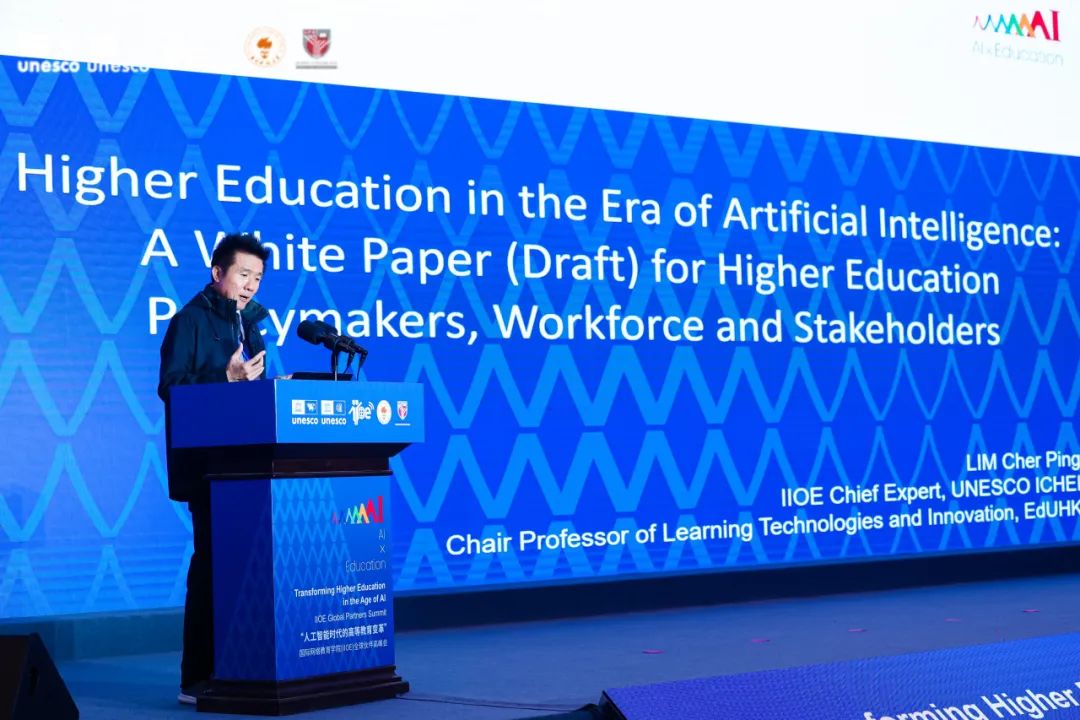
At the summit, Professor Lim Cher Ping, Chief Expert of the UNESCO-ICHEI IIOE and Chair Professor of Learning Technologies and Innovation at the Education University of Hong Kong, China (EdUHK), gave an overall introduction to the White Paper. Professor Lim Cher Ping said that the White Paper constitutes a policy advocacy and research outcome for IIOE partners to work together towards common policy standards and guidelines for the application of AI technologies. One of the highlights of the White Paper is the multi-stakeholder perspective, which explores the construction of higher education cooperation mechanisms in the AI era from perspectives of HEIs, Edtech enterprises, governments, and international organisations. It provides references from different perspectives for policy-making on the application of new technologies in HEIs. Based on industrial practices and in-depth research, the white paper discusses the role of University-Enterprise Cooperation (UEC) paths for the integration of AI and higher education. By comparing cases of higher education governance in different countries, the White Paper analyses the integration of AI and local culture, as well as the rational regulation of technology.
In addition, the White Paper emphasizes UNESCO-ICHEI’s advocacy and commitment to the future integration of AI and higher education. UNESCO-ICHEI will work with global partners to utilize the full potential of AI-empowered teaching, innovate the higher education model, promote the organic combination of teachers’ professional competence and AI technology. UNESCO-ICHEI endeavours to deepen the strategy of capacity building for HEIs, covering policy guidance, professional training, and technical support, in order to guarantee high-quality and equitable higher education and lifelong learning opportunities. Based on this common goal, IIOE is committed to enhancing the professional competencies of teachers in applying AI, improving the AI talent cultivation mechanism, promoting pedagogical and institutional management innovations, facilitating the optimization and upgrading of AI education products, and strengthening the HEI governance of AI technology globally.
Introduction to chapters
Artificial Intelligence (Al), as a technological tool that emulates human cognition and decision-making processes, stands out as the most influential and promising technology currently, introducing boundless and yet-to-be-explored possibilities. Despite continuous expectations regarding the application of Al in education, the unveiling of ChatGPT by OpenAl at the end of 2022 has tangibly demonstrated the limitless potential brought about by Al technology. The current state of Al predominantly falls under the Artificial Narrow Intelligence (ANI) category, specifically designed to perform well-defined tasks within limited domains, such as responding to questions based on input, highlighting its task-specific nature while lacking general intelligence.
ChatGPT, ERNIE Bot, SparkDesk, BingAl, Google Bard, and other Al-driven chatbots are examples of ANI. From a conceptual perspective, Artificial General Intelligence (AGI) refers to machines with intelligence at a human level capable of performing any intellectual task that humans can complete. Although AGI models are currently in the theoretical stage, the realisation of AGI is undoubtedly approaching with the continuous iteration of ANI.
While envisioning the future, the education sector has maintained a cautious and somewhat lagging approach to considering and applying Al technology. Emerging Al tools, such as Generative Al (GenAI) based on Large Language Models (LLM), Intelligent Tutoring Systems (ITS), and various Al-driven applications and online services, theoretically have the potential to transform teaching, research, talent development, and institutional management. Nevertheless, whether institutions have adequately prepared to address the changes brought about by Al and possess a clear understanding of how to integrate Al into the education system remains uncertain.
In June 2023, Stefania Giannini, Assistant Director-General for Education at UNESCO, stated in Generative Al and the Future of Education that “Generative Al opens new horizons and challenges for education. But we urgently need to take action to ensure that new Al technologies are integrated into education on our terms.” Despite rapid developments in Al in some countries, many developing countries have yet to widely adopt Al in higher education institutions (HEls).
This report consists of four chapters, including the opportunities and challenges for higher education in the era of Al, the opportunities and challenges brought by the Al industry and its integration with education, policy directions related to Al in various countries and coping strategies for institutions. The vision and prospects of UNESCO-ICHEl and the International Institute of Online Education (IIOE) depicted in this white paper aim to illustrate Al technology’s responsible and ethical integration with higher education by scanning current research and surveying relevant stakeholders. This report has openly collected voices of partners and experts that attended the “Transforming Higher Education in the Age of Al” IIOE 2023 Global Partners Summit and attempts to provide a comprehensive overview of Al-related issues in higher education for the IIOE partner network’s institutions and educators, presenting concrete solutions and potential roadmap to support stakeholders in the reasonable use of technology and tools, achieving high-quality and equitable higher education, and contributing to the achievement of sustainable development goals (SDGs).
REFERENCE:
- UNESCO IESALC, ChatGPT and Artificial Intelligence in Higher Education Quick Start Guide, https://www.iesalc.unes- co.org/wp-content/uploads/2023/04/ChatGPT-and-Artificial-Intelligence-in-higher-education-Quick-Start-guide_EN_FINAL.pdf
- Lin, C. C., Huang, A. Y. Q. & Lu, O. H. T. Artificial intelligence in intelligent tutoring systems toward sustainable education: a systematic review. Smart Learn. Environ. 10, 41 (2023). https://doi.org/10.1186/s40561-023-00260-y
- Generative Artificial Intelligence in Education: What are the opportunities and challenges? https://www.unesco.org/en/articles/generative-artificial-intelligence-education-what-are-opportunities-and-challenges
Chapter 1: Opportunities, Challenges, and Visions for Al Integration in Higher Education
Based on existing research, this chapter summarizes the opportunities and challenges of Al integration into higher education. On the one hand, it explores how Al can empower higher education and contribute to achieving Sustainable Development Goal 4 (SDG4) by ensuring inclusive and equitable quality education for all, and promoting lifelong learning opportunities. On the other hand, this chapter also discusses the challenges of Al in higher education, including academic integrity risks, ethical concerns, and the digital divide. The effective integration of Al with higher education depends heavily on enhancing teaching personnel competencies, while also demanding ethical and responsible use of Al technology by stakeholders in higher education.
This chapter also presents a future vision for Al integration in higher education. From this perspective, the chapter attempts to outline roadmaps, calling on policymakers, HEls, and Edtech enterprises to act jointly to innovate higher education and reshape the new ecosystem in the Al era. UNESCO-ICHEI is poised to take a pivotal role by providing policy guidance and recommendations, promoting teaching personnel competency frameworks, fostering international multilateral collaboration, and supporting projects on effective Al integration in education. Only through collective action and system-wide commitment can we co-create a new ecosystem, fully harness the potential of Al, and accelerate the realization of inclusive, equitable, and quality education and lifelong learning for all.
1.1 Opportunities of AI for SDG4
Al holds intriguing promise as an enabling technology that could assist in progress towards the SDG4 of ensuring inclusive and equitable quality education and promoting lifelong learning for al. This section details the opportunities of Al applications to help advance education inclusion, enhance the quality of teaching and learning, and expand lifelong learning opportunities.
1.2 Challenges of AI Higher Education
The impact of technology is always a double-sided sword. While students and young individuals tend to embrace technology optimistically, regulation at the national and institutional levels, and monitoring and assessment of ethical mechanisms are often lagging. This section will summarize the current overarching challenges in higher education.
1.3 Future Vision of AI Integration in Higher Education
The impact of Al, particularly GenAl, on stakeholders such as teaching personnel, institutions, and enterprises depends on the prudent and ethical usage of technologies. As teaching personnel provide the irreplaceable human skills of embodiment, creativity and ethical reasoning, inspiring students, and cultivating multidimensional development, AI fails to replace the unique role of humans in education. This human-Al collaboration, with teaching personnel firmly at the centre of steering Al’s development ethically, can amplify the best of both. In addition, effective integration of Al into higher education will amplify the outcomes towards SDG4. Specifically, with proper oversight and governance, Al can help enhance talent cultivation mechanisms, support teaching innovation, and promote institutional management innovation. Therefore, UNESCO-ICHEl holds an optimistic attitude towards the positive development of Al in higher education or Al in collaboration with teaching personnel, envisioning the following aspirations.
REFERENCE
- Francesc Pedro, Miguel Subosa, Axel Rivas, Paula Vaverde. Artificial intelligence in education: challenges and opportunities for sustainable development. Retrieved from: https://unesdoc.unesco.org/ark:/48223/pf0000366994
- UNESCO. Artificial Intelligence and Inclusion Concept Note. Retrieved from: https://en.unesco.org/sites/default/files/mlw-2020-concept-note-en.pdf
- Zhun Yee Chew. The A-Z Guide to Al in Education 2023: Almost Everything You Need to Know. Retrieved from: https://www.classpoint.io/blog/ai-in-education-guide
- UNESCO. Guide of Generative Al in education and research. Retrieved from: https://unesdoc.unesco.org/ark:/48223/pf0000386693
- UNESCO International Institute for Higher Education in Latin America and the Caribbean (IESALC). Harnessing the era of artificial intelligence in higher education: a primer for higher education stakeholders. Retrieved from: https://unesdoc.unesco.org/ark:/48223/pf0000386670
- National Telecommunications and Information Administration (NTIA). Falling Through the Net II: New Data on the Digital Divide. Retrieved from: https://www.ntia.gov/page/falling-through-net-ii-new-data-digital-divide
- Gabriel Elkeiy. Future-Proof Skills Can Help Balance Individual and Societal Progress. Retrieved from: https://www.un.org/zh/187674
- Ng, D. T. K., Leung, J. K. L., Su, J. et al. Teachers’ Al digital competencies and twenty-first-century skills in the post-pandemic world. Education Tech Research Dev 71, 137-161 (2023). https://doi.org/10.1007/s11423-023-10203-6
- 许竹青,信息沟通技术与农民的信息化问题研究:从“数字鸿沟”到“信息红利”。A Study on ICTs and Farmers’ Informatization in China: From Digital Divide to Digital Provide (2013)
- Wang, T. (2023). Navigating Generative Al (ChatGPT) in Higher Education: Opportunities and Challenges. In International Conference on Smart Learning Environments (pp. 215-225). Singapore: Springer Nature Singapore.
- Fengchun Miao, Wayne Holmes, Ronghuai Huang, and Hui Zhang. Al and education: guidance for policy-makers. Retrieved from: https://unesdoc.unesco.org/ark:/48223/pf0000376709
- UNESCO, Guidance for Generative Al in Education and Research. Retrieved from: https://unesdoc.unesco.org/ark:/48223/pf0000386693
Chapter 2: Enterprise Partnership in Facilitating AI Integration in Higher Education
It is significant for institutions to achieve their future vision and seize development opportunities through the enterprise’s scale and first-mover advantages. Therefore, based on the diverse partnership characteristics of IIOE and its own vision, it is strategically necessary to understand the new development of enterprises and contemplate how IIOE can leverage the results of university-enterprise cooperation to drive innovation in higher education.
Chapter 3: AI and Higher Education: Policy and Governance
It delves into the leading role of administrative departments of government and HEIs in the regulation and governance of AI, exploring their political practices in promoting AI integration in higher education and identifying the current gaps in education ministries and HEIs in AI governance policies. It attempts to compare and summarize the principles supporting the effective introduction, management, and governance of AI technology.
Chapter 4: Helping Higher Education Institutions and Teaching Personnel Adapt to the New Demands of Al Technology under the Framework of IIOE
It explores the vision of how IIOE will promote the integration of the AI technology industry with instruction and HEIs, leveraging the opportunities presented by emerging technologies to continuously respond to UNESCO’s unified framework and serve the overall objectives of UNESCO-ICHEI. IIOE is committed to supporting the digital empowerment of partner HEIs in developing countries through a series of measures, such as public-private partnership ecological alliances, national center mechanisms, open digital learning platforms and smart classrooms. In the era of AI, IIOE will also undertake a new mission and actively advocate the organic integration of AI and higher education.
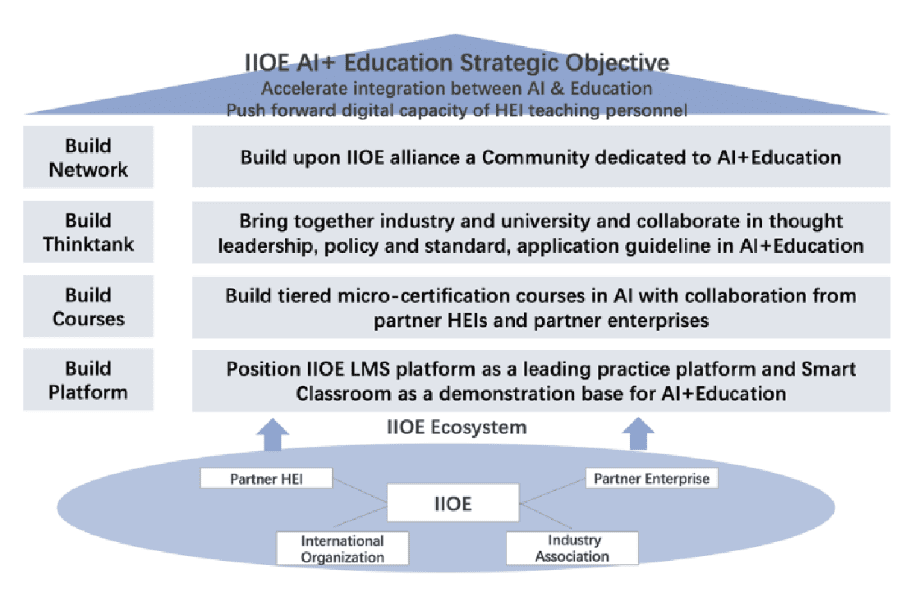
The original article titled, “White Paper Release at the 2023 IIOE Global Partners Summit”, first appeared on https://en.ichei.org/dist/index.html#/FocusNewsDetail?id=1565 and the final white paper can be downloaded here!

